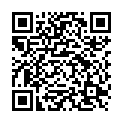|
|
|
| Module code: E1921 |
|
|
1V+1U (2 hours per week) |
|
3 |
| Semester: according to optional course list |
| Mandatory course: no |
Language of instruction:
German |
Assessment:
Written examination
[updated 13.03.2010]
|
E1921 (P241-0324) Electrical Engineering and Information Technology, Master, ASPO 01.04.2019
, optional course, technical, course inactive since 31.03.2020
E935 Electrical Engineering, Master, ASPO 01.10.2005
, semester 9, optional course
E1921 (P241-0324) Electrical Engineering, Master, ASPO 01.10.2013
, optional course, technical
|
30 class hours (= 22.5 clock hours) over a 15-week period.
The total student study time is 90 hours (equivalent to 3 ECTS credits).
There are therefore 67.5 hours available for class preparation and follow-up work and exam preparation.
|
Recommended prerequisites (modules):
None.
|
Recommended as prerequisite for:
|
Module coordinator:
Prof. Dr. Wolfgang Langguth |
Lecturer: Prof. Dr. Wolfgang Langguth
[updated 14.10.2015]
|
Learning outcomes:
Numerical methods play a major role in engineering degree courses and in the field of electrical and electronic engineering in particular, where they are used in the analysis of signals and measurement data. This module builds on the basic numerical methods course (E806: Higher Mathematics II – Numerical Methods and Statistics) and aims to teach students more advanced numerical methods. By undertaking small-scale projects students will learn how to use numerical methods to plan and solve problems.
After completing this module, students will be able to solve the sort of complex numerical problems that arise in communications engineering and automation engineering either working individually or in collaboration with mathematicians.
[updated 13.03.2010]
|
Module content:
Orthogonal polynomials
1.Numerical integration
2.Integral equations
3.Non-linear equations
4.Least-squares methods, Fourier series and the Fourier transform
5.Eigenvalue problems
[updated 13.03.2010]
|
Teaching methods/Media:
Blackboard, overhead projector, video projector, lecture notes (planned)
[updated 13.03.2010]
|
Recommended or required reading:
SCHWARZ: Numerische Mathematik, Teubner, 1993
Scheid: Numerische Analysis, Schaum, 1991
PRESS et al.: Numerical Recipes, Cambridge Press, 1987
STOER: Einführung in die Numerische Mathematik I und II, Springer, 1972
Schwetlick, Kretschmar: Numerische Verfahren für Naturwissenschaftler und Ingenieure, Fachbuchverlag Leipzig, 1991
SCHABACK, WERNER: Numerische Mathematik, Springer, 1992
KOSE, SCHRÖDER, WIELICZEK: Numerik sehen und verstehen, Vieweg, 1992
BRONSTEIN, SEMENDJAJEW, MUSIOL, MÜHLIG: Taschenbuch der Mathematik, Deutsch 2000
STÖCKER: Taschenbuch der Mathematik, Harri Deutsch Verlag, Frankfurt
[updated 13.03.2010]
|


